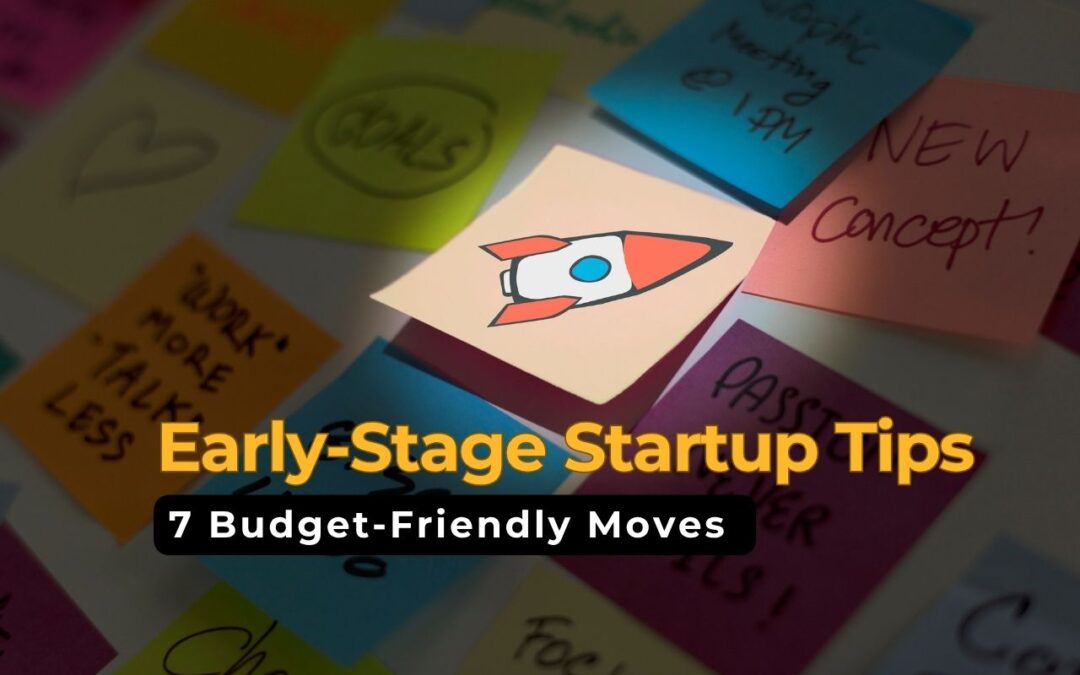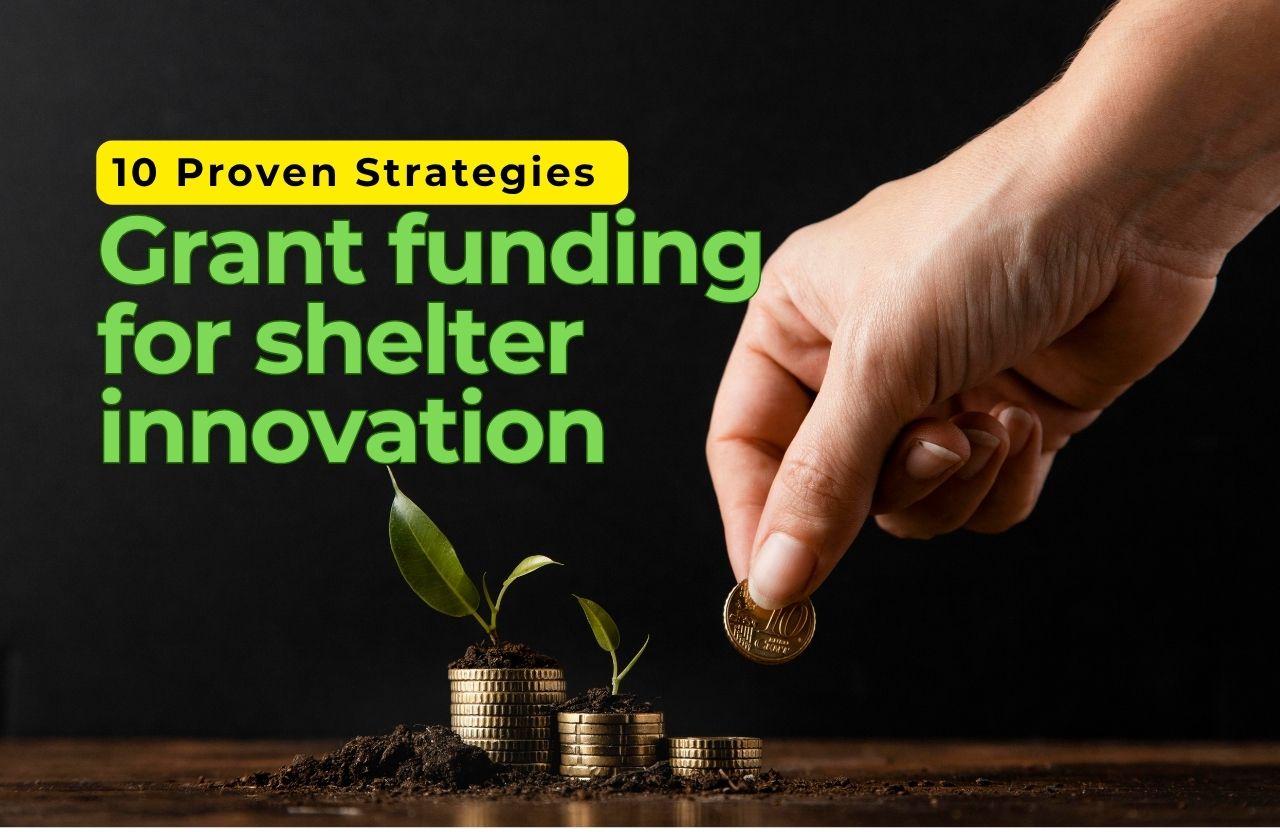Venturing into business is an exhilarating experience with so much ambition, huge aspirations and slim pocketbooks. If you’re in the early part of your startup journey, you’re likely wearing many hats and watching every dollar that’s being spent. That’s precisely why clever, resourceful tactics are your partner today. In this article, we’ll share early-stage startup tips that are budget-friendly yet surprisingly powerful. These aren’t just theories, they’re tried-and-true moves that many successful startups use to go from zero to sustainable growth.
Let’s dive into 7 real hacks that work without breaking the bank.
1. Build an MVP, Not a Monster
You don’t require a properly refined product to validate your idea. What you require is an MVP of your simplified product that does the job. Rather than getting bogged down trying to create the perfect initial experience and test it. These early-stage startup tips work best when combined with user feedback loops and rapid iteration. For more expert guidance on MVP development, check out Y Combinator’s Startup Library – a trusted resource for founders. Focus on what’s important: one core feature that solves one clear problem. That is more than enough to validate your idea before growing.
2. Go Big on Organic Social Media
Social media is your playground, and best of all, it’s free. You don’t need a high-resolution camera or a social media agency to start building an audience. Choose a platform where your target customers congregate. If you’re B2B, the platform is LinkedIn. If you have visuals or are lifestyle content-focused, it is Instagram or TikTok. Document your experience, share educational content and have genuine conversations. Organic social creates trust and authority, and through consistency, it generates leads and customers.
3. A Simple Website Is All You Need
Most startups hold back on launch because they believe that they require a pixel-perfect website. In all honesty, a basic landing page featuring your value proposition, an attention-grabbing headline and a form to contact you will more than suffice. Your message should be easy for users to absorb – who are you for, what are you selling and why is that material? Clear CTAs and messaging are essential early-stage startup tips that can drive conversions even on a basic landing page. Platforms like Wix, Carrd and Squarespace allow you to create beautiful things, at less than $20 a month and without writing code.
4. Freelancers Over Full-Time Hires
Taking on full-time staff eats away at your runway quickly. Opt for freelancers or part-time contractors who will get you moving without long-term obligation. Need some design assistance? Get on Fiverr. Want some content? Look at Upwork. Need a little backend code? There’s a dev on Toptal for that. Better still, contact students or recent graduates eager for experience, they happily work for a reduced rate or even intern for nothing in return for portfolio pieces. It’s a two-way street: you save money and get work done without the overhead.
5. Employ Free Tools Everywhere Possible
We’re in the age of SaaS and surprise. Most of them have superb free versions. Slack facilitates team communication. Your entire project management can be handled by Trello or Notion. Canva creates stunning designs. Calendly schedules and also plugins like Mailchimp or Sender can get you started on your email list. Startups don’t require enterprise software, start lean. You can always scale as you grow. Choosing lightweight, free tools is one of the most effective early-stage startup tips for maximizing output on a budget.
6. Get the Right Communities
You do not have to do this alone. There are online communities with others just like you, other founders, mentors and marketers who have been in your shoes. Platforms such as Indie Hackers, Reddit’s r/startups and even Twitter (X) are riddled with useful discussions, templates, feedback and assistance. Founders post everything from customer acquisition hacks to funding tips most of which you won’t see in blog posts or courses. And you might find beta users, collaborators or even co-founders if you’re engaged and contributive.
7. Sell Before You Build. Sounds counterintuitive, right?
But one of the most effective startup growth hacks that actually works is pre-selling. What that means is selling your product or service to a small group before it’s complete. If they pay, you know it’s something worth building. If not, you just saved months of development. Pre-selling confirms your concept and generates early revenue. Whether an early-bird discount or a closed beta, it’s one of the most intelligent cost-saving concepts for startups.
FAQs
1. What should I prioritize most as a new startup?
Begin by testing your fundamental concept. Create a basic MVP, test it and iterate on real user feedback.
2. Do I need high budget to market my startup?
Not at all. Natural, organic channels such as networking, social media, word-of-mouth are all very real and essentially free.
3. How do I hire well for spending minimum?
You can hire freelance, part-time and intern. Always keep it at a core result mentality, not working hours.
4. Do I need to wait to create a website until my product is ready?
Nope. Create an initial landing page sooner. It aids in branding and email capture even before launch.
5. How do I establish authority as a new brand?
Be consistent in your content. Convey your story, lessons and your insights. Authenticity is trust-building.
6. What happens if I fail after I implement these strategies?
Failure comes with the process. We can consider every failure as data, we can improve our method and we can keep going.
Final Thoughts: Small Starts lead to Big Spreads
You do not have to be building million-dollar businesses for million-dollar budgets. You need focus, creativity and to do more with less. These startup secrets at the early stage are not survival tactics; they’re growth accelerators. From idea validation to hacking for visibility, these low-cost strategies can potentially set up a strong foundation for long-term success.
Need assistance adapting these strategies to your startup? Reach out to our team at Our Business Ladder today and let’s turn your vision into traction. We excel at startup advice, budgeting, and business development strategies tailored specifically for early-stage founders such as yourself.













